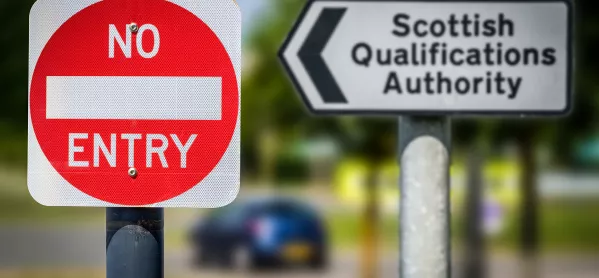Ministers are being warned that strike action by staff at the Scottish Qualifications Authority (SQA) over pay could have a “major impact” on preparations for this year’s exams.
SQA staff are due to walk out on Friday 23 February, and the union Unite is warning of the effect this will have on the coursework marking and external verification process.
The SQA has, however, accused Unite of “unnecessary scaremongering”. It says the walkout will have “no impact on their coursework, exams or grades”.
Unite said about 400 staff are expected to take part in the action; the next strike is scheduled to take place on Thursday 29 February.
An overtime ban, a ban on weekend working and a ban on accruing time off in lieu also came into effect on Friday 16 February. This action short of a strike will continue until Friday 10 May.
Unite said the offer made by the SQA for 2023 and 2024 would see most workers receive pay rises of 5.75 per cent and 3.15 per cent for the two years respectively.
‘Brutal pay cut’
Unite general secretary Sharon Graham said: “The pay offer made by the SQA represents a brutal pay cut. Our members will not accept being so undervalued by senior management.
“Unite will support our members all the way in the fight for better jobs, pay and conditions at the SQA.”
Unite industrial officer Alison Maclean blamed both the exams body and the Scottish government for the strike action, accusing ministers of failing to provide the money for a better pay deal.
She said both bodies “should be under no illusions that months of industrial action will create a major impact on the coursework marking and external verification process”.
Contingency plans
An SQA spokesperson said the industrial action was “regrettable” but that most SQA staff would be at work tomorrow.
They said: “We have robust contingency plans in place and can reassure learners that there is no impact on their coursework, exams or grades.”
The spokesperson added that the pay offer on the table represented a total average increase of 7.43 per cent in year one and a further total average rise of 5.19 per cent in year two, including pay progression.
A Scottish government spokesperson said it had “strongly encouraged resolution talks to resume”.
For the latest Scottish education news, analysis and features delivered directly to your inbox, sign up to Tes magazine’s The Week in Scotland newsletter




